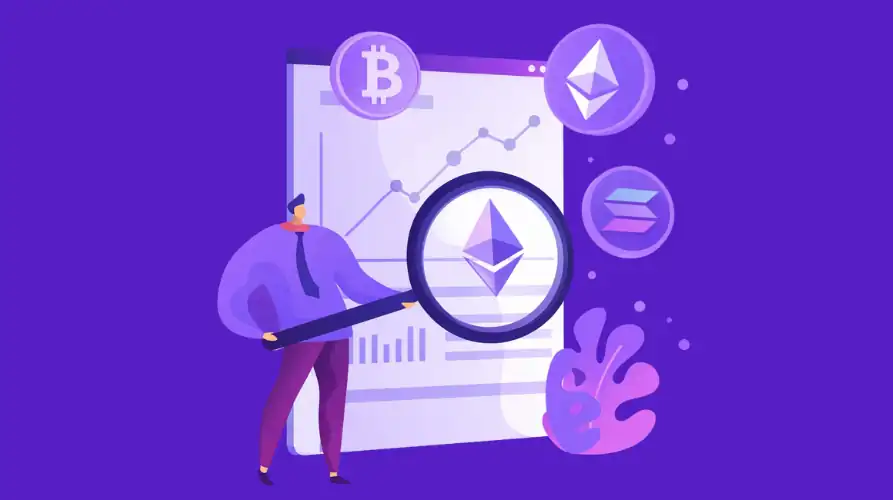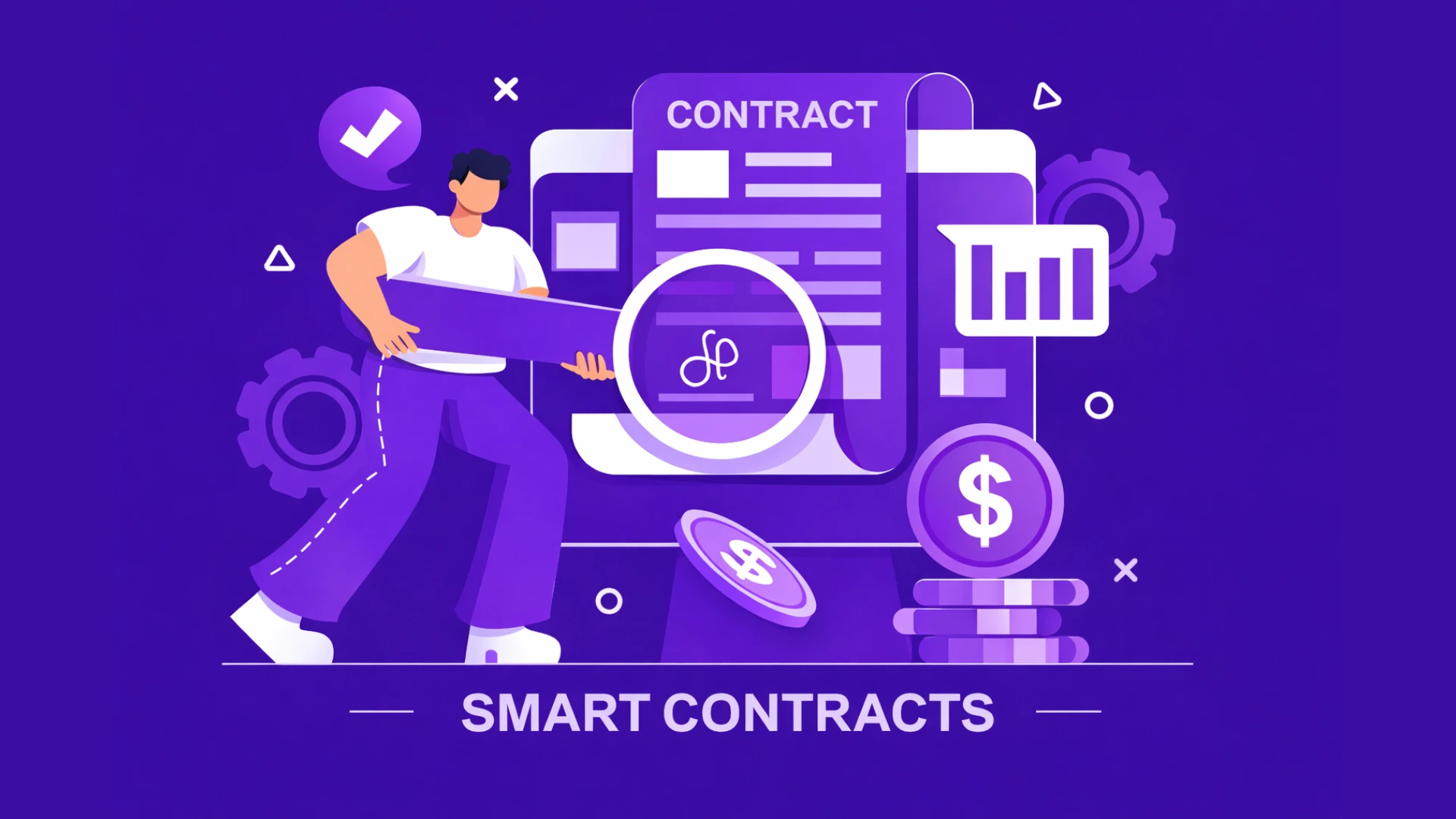✓
Key Takeaways
- 1The Ethereum Virtual Machine is the runtime environment that executes all smart contracts on Ethereum and EVM-compatible blockchains.
- 2EVM uses a stack-based architecture with 256-bit word size, optimized for cryptographic operations and blockchain-specific computations.
- 3Gas mechanism prevents infinite loops and denial-of-service attacks while ensuring fair resource allocation across the network.
- 4Over 20 major blockchains including Polygon, Arbitrum, and BNB Chain are EVM-compatible, creating a unified development ecosystem.
- 5Understanding EVM internals is essential for writing gas-efficient smart contracts that minimize transaction costs for users.
Introduction to the Ethereum Virtual Machine (EVM)
The Ethereum Virtual Machine stands as the beating heart of the world’s most influential smart contract platform. After eight years of building decentralized applications and optimizing contract performance, our team recognizes the EVM as the single most important innovation enabling programmable blockchain functionality. Understanding how this virtual machine operates is essential for anyone serious about blockchain development.
Every smart contract deployed on Ethereum, every DeFi protocol managing billions in assets, and every NFT marketplace facilitating digital ownership runs through the Ethereum Virtual Machine. This computation engine transforms high-level code into executable instructions that thousands of nodes process identically, ensuring consensus across the entire network without central coordination.
This comprehensive guide explores the Ethereum Virtual Machine from foundational concepts through advanced architecture. Whether you are a developer seeking to optimize gas consumption, an architect evaluating blockchain platforms, or a technical leader making infrastructure decisions, mastering EVM fundamentals provides the knowledge foundation for building secure, efficient decentralized applications.
What Is the Ethereum Virtual Machine?
The Ethereum Virtual Machine is a sandboxed runtime environment that executes smart contract bytecode across all Ethereum network nodes. Think of it as a global, decentralized computer where every participating node runs the same program and reaches identical results. This deterministic execution enables trustless computation without requiring participants to trust each other or any central authority.
Unlike traditional virtual machines like the Java Virtual Machine that run on single computers, the Ethereum Virtual Machine operates as a distributed state machine. It maintains a global state representing all account balances, contract storage, and code across the network. Each transaction triggers state transitions that every node computes independently, with consensus mechanisms ensuring all honest nodes arrive at the same new state.
The EVM is Turing-complete, meaning it can theoretically compute anything calculable given sufficient resources. However, the gas mechanism constrains execution to prevent infinite loops and ensure fair resource usage. This design balance enables powerful programmability while maintaining network stability and security across thousands of decentralized nodes.
Technical Definition: The Ethereum Virtual Machine is a quasi-Turing-complete, stack-based virtual machine with a 256-bit word size that processes EVM bytecode to execute smart contracts deterministically across a distributed network of nodes.
Why the EVM Is Important for Smart Contracts
The Ethereum Virtual Machine transforms blockchain from a simple ledger into a programmable platform capable of executing arbitrary logic. Before Ethereum, blockchains could only transfer value between accounts. The EVM introduced the ability to deploy self-executing code that automatically enforces agreements, manages assets, and coordinates complex multi-party interactions without intermediaries.
Deterministic execution represents perhaps the most critical property the Ethereum Virtual Machine provides. Given identical inputs and starting state, every node running the EVM produces exactly the same outputs. This determinism enables consensus without nodes needing to trust each other. Whether a node operates in Tokyo, New York, or São Paulo, executing the same transaction yields identical results.
Trustless Execution
Code executes exactly as written with no possibility of interference, censorship, or manipulation by any party including node operators.
Isolation and Security
Each contract runs in complete isolation. Bugs or exploits in one contract cannot directly compromise other contracts or the network itself.
Immutable Deployment
Once deployed, contract code cannot be changed. Users can verify and trust that the code they interact with remains unchanged forever.
Universal Compatibility
Contracts compile to standard bytecode that runs identically across all EVM implementations regardless of underlying hardware or operating system.
How the EVM Executes Smart Contracts
Understanding how the Ethereum Virtual Machine executes smart contracts reveals the elegant engineering behind decentralized computation. The process begins when a user submits a transaction calling a contract function. This transaction propagates through the network until validators include it in a block, triggering execution across all nodes.
The EVM loads the contract’s bytecode from storage and initializes a fresh execution context. This context includes an empty stack, zeroed memory, the contract’s persistent storage, and environmental information like sender address, transaction value, and block data. The machine then begins processing bytecode instructions sequentially, one opcode at a time.
Each opcode performs a specific operation: pushing values onto the stack, performing arithmetic, reading storage, or transferring funds. The Ethereum Virtual Machine tracks gas consumption for every operation, halting execution if gas runs out. When execution completes successfully, state changes become permanent and results return to the caller.
EVM Smart Contract Execution Flow
Step 1
→
Step 2
→
Step 3
→
Step 4
→
Step 5
✓
How the Ethereum Virtual Machine Processes Transactions
EVM Architecture and Key Components
The Ethereum Virtual Machine architecture consists of several interconnected components that work together to enable secure, deterministic computation. Understanding these components helps developers write more efficient code and debug issues when contracts behave unexpectedly.
| Component | Description | Characteristics |
|---|---|---|
| Stack | Primary computation workspace | 1024 items max, 256-bit words, LIFO |
| Memory | Volatile byte-addressable space | Expandable, zeroed each call, linear cost |
| Storage | Persistent key-value store | 256-bit to 256-bit mapping, expensive |
| Program Counter | Current instruction pointer | Tracks bytecode position, modified by jumps |
| Gas Counter | Remaining computation budget | Decrements per operation, halts when zero |
The stack serves as the primary workspace for the Ethereum Virtual Machine. According to Geeksforgeeks Blog, All arithmetic operations, comparisons, and data manipulations occur through stack operations. Opcodes pop operands from the stack, perform computations, and push results back. This stack-based design simplifies implementation and verification while enabling efficient bytecode representation.
Memory provides temporary storage during execution that resets between calls. Unlike the expensive persistent storage, memory access costs scale linearly with expansion, making it suitable for intermediate computations and data manipulation. Storage, conversely, persists across transactions but costs significantly more gas, incentivizing efficient state management.
Bytecode and Execution Flow in the EVM
Smart contracts written in Solidity or other high-level languages compile down to EVM bytecode before deployment. This bytecode consists of a sequence of opcodes, each represented by a single byte. The Ethereum Virtual Machine reads and executes these opcodes one at a time, maintaining complete determinism across all network nodes.
The EVM instruction set includes over 140 opcodes covering arithmetic operations, stack manipulation, memory and storage access, control flow, logging, and system operations. Each opcode has a predefined gas cost reflecting its computational complexity and resource consumption. Understanding these costs is essential for writing gas-efficient contracts.
| Opcode Category | Examples | Gas Cost Range | Purpose |
|---|---|---|---|
| Arithmetic | ADD, MUL, SUB, DIV | 3-5 gas | Mathematical operations |
| Stack Operations | PUSH, POP, DUP, SWAP | 2-3 gas | Data manipulation |
| Memory Access | MLOAD, MSTORE | 3+ gas | Temporary data storage |
| Storage Access | SLOAD, SSTORE | 100-20,000 gas | Persistent state changes |
| External Calls | CALL, DELEGATECALL | 100+ gas | Contract interactions |
Developer Insight: From our 8+ years optimizing smart contracts, we have learned that storage operations dominate gas costs in most applications. A single SSTORE writing new data costs 20,000 gas while basic arithmetic costs just 3-5 gas. Restructuring contracts to minimize storage writes often reduces transaction costs by 50% or more.
Gas and Resource Management in the EVM
Gas represents the fundamental resource management mechanism in the Ethereum Virtual Machine. Every computational step, storage modification, and data operation consumes gas proportional to its resource requirements. This metering system prevents denial-of-service attacks, ensures fair resource allocation, and compensates validators for processing transactions.
When users submit transactions, they specify a gas limit and gas price. The gas limit caps maximum computation the transaction can perform, protecting users from unexpectedly expensive executions. The gas price determines how much users pay per gas unit, with higher prices incentivizing faster inclusion. The Ethereum Virtual Machine halts execution immediately if gas depletes, reverting all state changes while still charging for consumed gas.
Gas Cost Comparison by Operation Type
Storage Operations Cost 1000x More Than Arithmetic
EIP-1559 introduced dynamic base fees that adjust automatically based on network congestion. When blocks fill beyond target capacity, base fees increase, naturally throttling demand. This mechanism improves fee predictability while burning base fees rather than paying them to validators, creating deflationary pressure on ETH supply.
EVM Compatibility Across Blockchains
The Ethereum Virtual Machine has become the de facto standard for solana smart contract execution across the blockchain industry. Over twenty major blockchains have implemented EVM compatibility, allowing developers to deploy identical contracts across multiple networks. This compatibility creates a unified development ecosystem where skills, tools, and code transfer seamlessly between chains.
EVM-compatible chains implement the same opcode set, gas semantics, and execution model as Ethereum. Contracts compiled for Ethereum deploy without modification on Polygon, Arbitrum, Avalanche, and dozens of other networks. This portability dramatically reduces development costs and accelerates ecosystem growth by leveraging existing tooling and developer expertise.
| Blockchain | Type | EVM Compatibility | Primary Use Case |
|---|---|---|---|
| Polygon | Sidechain/L2 | Full compatibility | Low-cost transactions |
| Arbitrum | Optimistic Rollup | Full compatibility | DeFi scaling |
| BNB Chain | Layer 1 | Full compatibility | High throughput |
| Avalanche C-Chain | Layer 1 | Full compatibility | Fast finality |
| Optimism | Optimistic Rollup | Full compatibility | Ethereum scaling |
Security Role of the EVM in Smart Contracts
The Ethereum Virtual Machine provides multiple security layers that protect name service contracts and the broader network from attacks. Sandboxed execution ensures contracts cannot access host system resources, preventing malicious code from compromising validator nodes. Each contract runs in complete isolation with access only to its own storage and explicitly provided data.
Deterministic execution eliminates an entire class of vulnerabilities related to non-determinism. Traditional software can behave differently based on timing, random number generation, or system state. The Ethereum Virtual Machine produces identical outputs given identical inputs across all nodes, making consensus verification straightforward and eliminating timing-based attack vectors.
Gas limits prevent computational denial-of-service attacks. Without gas constraints, attackers could deploy contracts with infinite loops that consume all network resources. The gas mechanism ensures every computation has finite cost, making attacks economically impractical while maintaining network availability for legitimate users.
Security Note: While the Ethereum Virtual Machine provides robust execution security, it cannot prevent vulnerabilities in contract logic itself. Reentrancy attacks, integer overflows, and access control bugs remain developer responsibilities. The EVM executes exactly what code specifies, even if that code contains exploitable flaws.
Limitations of the Ethereum Virtual Machine
Despite its revolutionary capabilities, the Ethereum Virtual Machine has inherent limitations that affect performance, cost, and developer experience. Understanding these constraints helps teams make informed architectural decisions and set realistic expectations for what smart contracts can achieve efficiently.
Computational throughput remains significantly lower than traditional systems. The EVM processes roughly 15-30 transactions per second on Ethereum mainnet, compared to thousands or millions for conventional databases. Every operation must execute on thousands of nodes worldwide, with consensus requirements limiting parallelization opportunities.
Key EVM Limitations
Understanding These Constraints Guides Better Architecture
Storage costs make the Ethereum Virtual Machine unsuitable for data-intensive applications. Storing one kilobyte of data costs approximately $10-100 depending on gas prices. Applications requiring significant storage in oracles smart contracts for typically store data off-chain with only hashes or references recorded on the blockchain, adding architectural complexity.
The 24KB contract size limit restricts complexity within single contracts. Large protocols must split functionality across multisig smart contracts, increasing deployment costs and call overhead. Stack depth limits and lack of native floating-point arithmetic further constrain what developers can implement efficiently.
EVM vs Other Blockchain Virtual Machines
While the Ethereum Virtual Machine dominates the smart contract landscape, alternative virtual machines offer different tradeoffs that may better suit specific use cases. Comparing these approaches helps architects select optimal platforms for their requirements.
| Virtual Machine | Architecture | Languages | Key Advantage |
|---|---|---|---|
| Ethereum Virtual Machine | Stack-based, 256-bit | Solidity, Vyper | Largest ecosystem |
| WebAssembly (WASM) | Stack-based, 32/64-bit | Rust, C++, many others | Near-native performance |
| Solana BPF | Register-based | Rust, C | Parallel execution |
| Move VM | Resource-oriented | Move | Safety guarantees |
| Cairo VM | STARK-provable | Cairo | ZK-proof generation |
WebAssembly-based systems like those in Polkadot and Near Protocol support mainstream programming smart contract languages and achieve higher performance through efficient compilation. However, they lack the Ethereum Virtual Machine’s vast ecosystem of tools, auditors, and battle-tested code. The tradeoff between performance and ecosystem maturity remains a key architectural decision.
Future of the EVM in Smart Contracts
The Ethereum Virtual Machine continues evolving to address current limitations while maintaining backward compatibility. Planned upgrades promise significant improvements in performance, developer experience, and capability expansion that will shape smart contract development for years to come.
EOF (EVM Object Format) introduces structured code sections, validation at deployment, and new instructions that simplify compilation and analysis. This upgrade enables more efficient bytecode while improving security through upfront validation. Developers will benefit from better tooling and clearer error messages when EOF activates.
Verkle trees will dramatically reduce proof sizes, enabling stateless clients that can verify transactions without storing complete blockchain state. This advancement allows lighter nodes, improving decentralization and enabling new use cases for resource-constrained devices. The Ethereum Virtual Machine will gain new opcodes supporting these cryptographic primitives.
Industry Projection: Based on our experience tracking blockchain technology evolution, we expect the Ethereum Virtual Machine to remain the dominant smart contract runtime through at least 2030. Its network effects, tooling ecosystem, and continued improvement create significant switching costs that newer alternatives struggle to overcome despite technical advantages.
Need Expert EVM Development?
Our team brings 8+ years of Ethereum Virtual Machine expertise to help you build secure, gas-optimized smart contracts for any EVM-compatible blockchain.
Frequently Asked Questions
The Ethereum Virtual Machine (EVM) is the engine that runs smart contracts on Ethereum and EVM-compatible blockchains. It works like a global computer where every node executes the same code and gets the same result. This ensures trust, security, and consistency across the network without relying on a central authority or server.
The EVM makes smart contracts possible by executing code exactly as written. It ensures that contracts behave the same way for everyone, everywhere. Without the EVM, Ethereum would only transfer tokens. With it, developers can build DeFi apps, NFTs, DAOs, and complex decentralized systems that run without intermediaries.
When a transaction calls a smart contract, the EVM loads its bytecode and executes instructions one by one. Each step uses gas, which limits computation and prevents abuse. If the contract finishes successfully, changes are saved on the blockchain. If gas runs out or an error occurs, all changes are reverted automatically.
Gas is the fee required to execute operations in the EVM. Every action—like calculations, storage updates, or transfers—costs gas. This prevents infinite loops and network attacks. Users set a gas limit and price, controlling how much they are willing to pay. Efficient contracts use less gas and cost users less money.
EVM-compatible blockchains are networks that support the same execution rules as Ethereum. Examples include Polygon, Arbitrum, Optimism, and BNB Chain. Developers can deploy the same smart contracts across these networks with little or no change. This creates a shared ecosystem and makes blockchain development faster and cheaper.
The EVM includes a stack for calculations, memory for temporary data, storage for permanent data, and gas for execution limits. The stack handles operations, memory resets after each call, and storage keeps data forever. Understanding these components helps developers write efficient and secure smart contracts.
The EVM is secure but not very fast. It processes limited transactions per second and has high storage costs. Contracts also have size limits and no built-in parallel execution. Because of this, many apps store large data off-chain and only keep essential information on-chain to reduce costs.
The EVM will continue improving through upgrades like EVM Object Format (EOF) and Verkle Trees. These changes aim to reduce gas costs, improve security, and support lighter nodes. Despite new virtual machines emerging, the EVM is expected to remain the most widely used smart contract runtime due to its massive ecosystem.
Reviewed & Edited By

Aman Vaths
Founder of Nadcab Labs
Aman Vaths is the Founder & CTO of Nadcab Labs, a global digital engineering company delivering enterprise-grade solutions across AI, Web3, Blockchain, Big Data, Cloud, Cybersecurity, and Modern Application Development. With deep technical leadership and product innovation experience, Aman has positioned Nadcab Labs as one of the most advanced engineering companies driving the next era of intelligent, secure, and scalable software systems. Under his leadership, Nadcab Labs has built 2,000+ global projects across sectors including fintech, banking, healthcare, real estate, logistics, gaming, manufacturing, and next-generation DePIN networks. Aman’s strength lies in architecting high-performance systems, end-to-end platform engineering, and designing enterprise solutions that operate at global scale.







